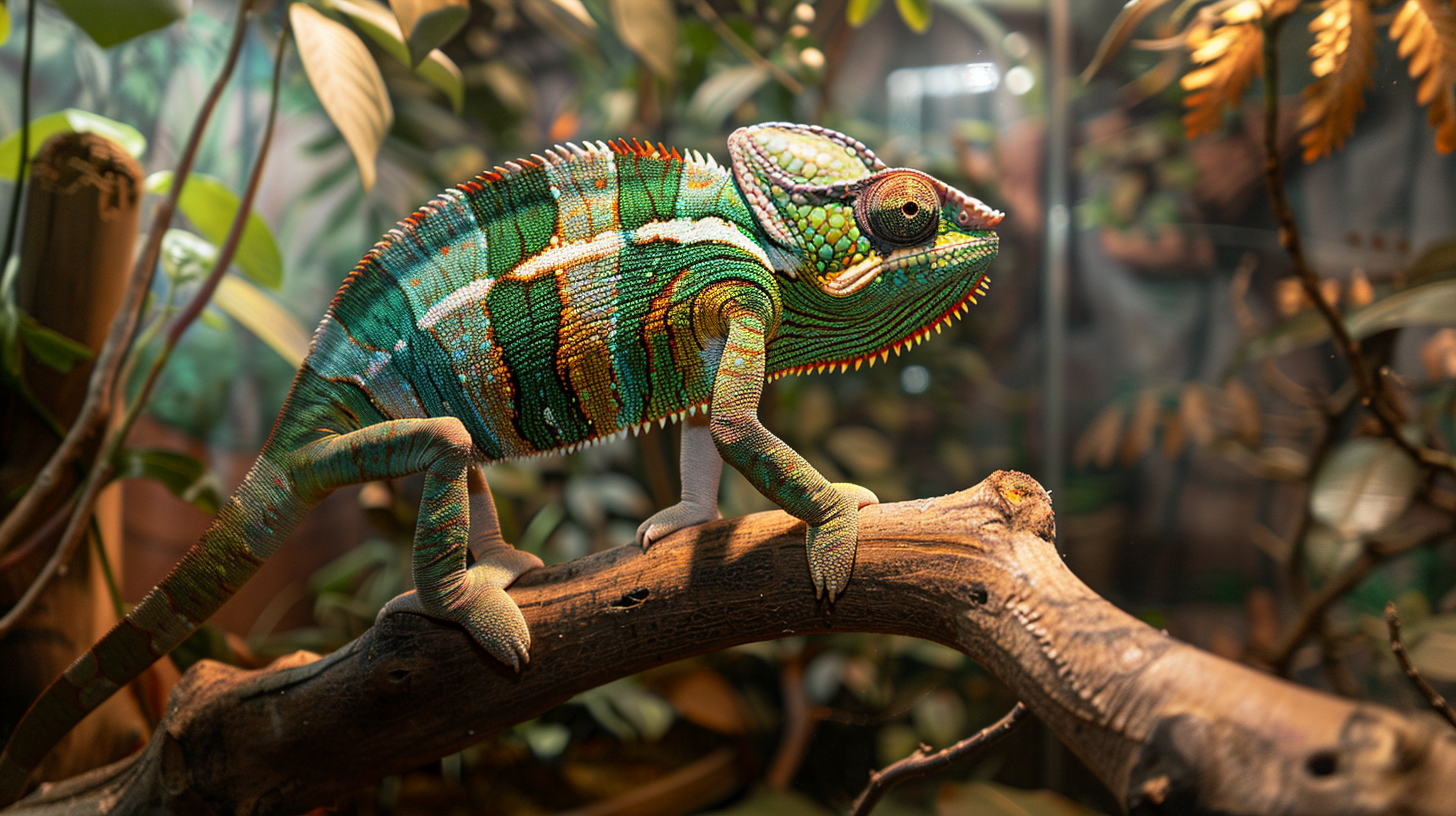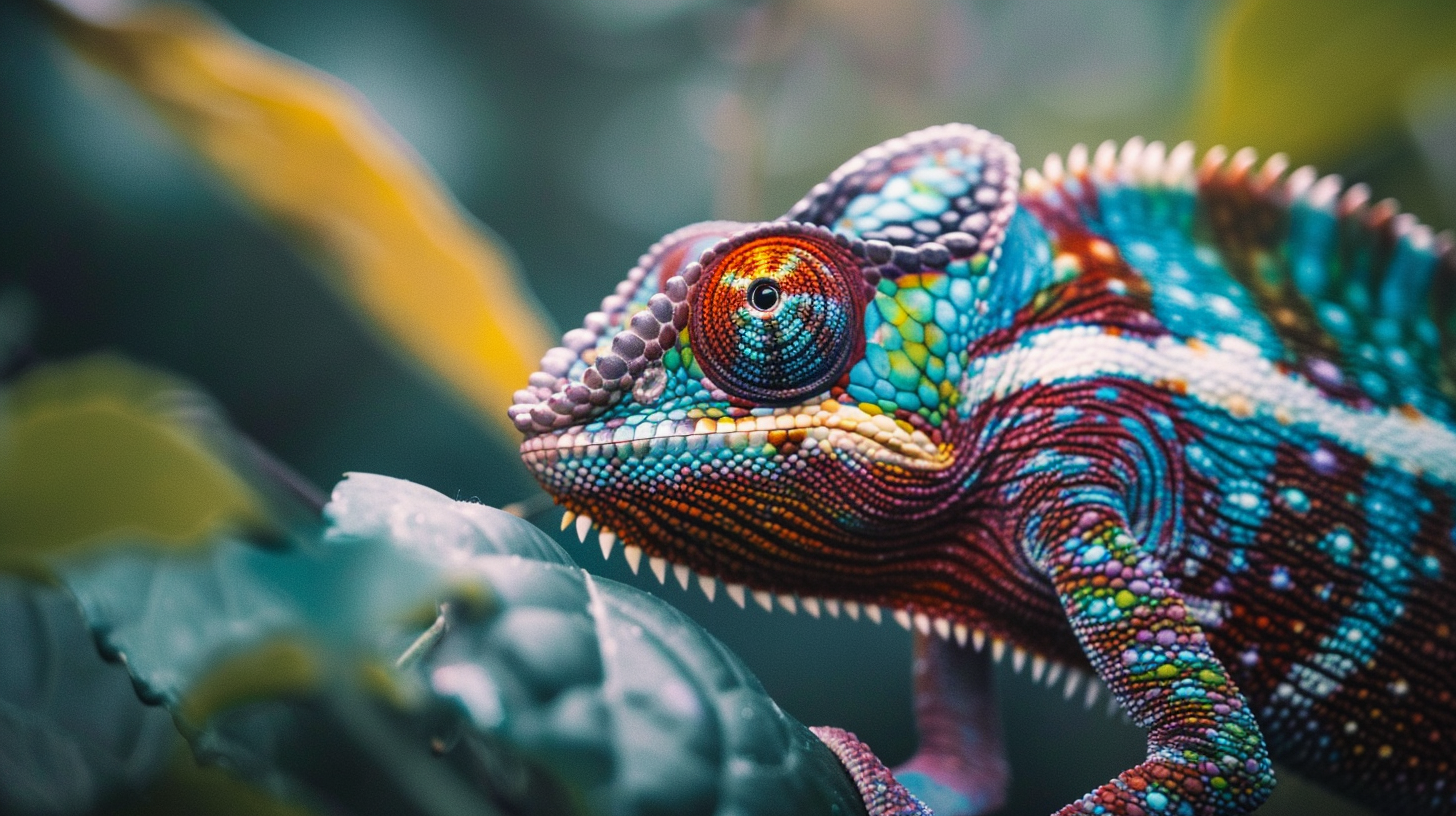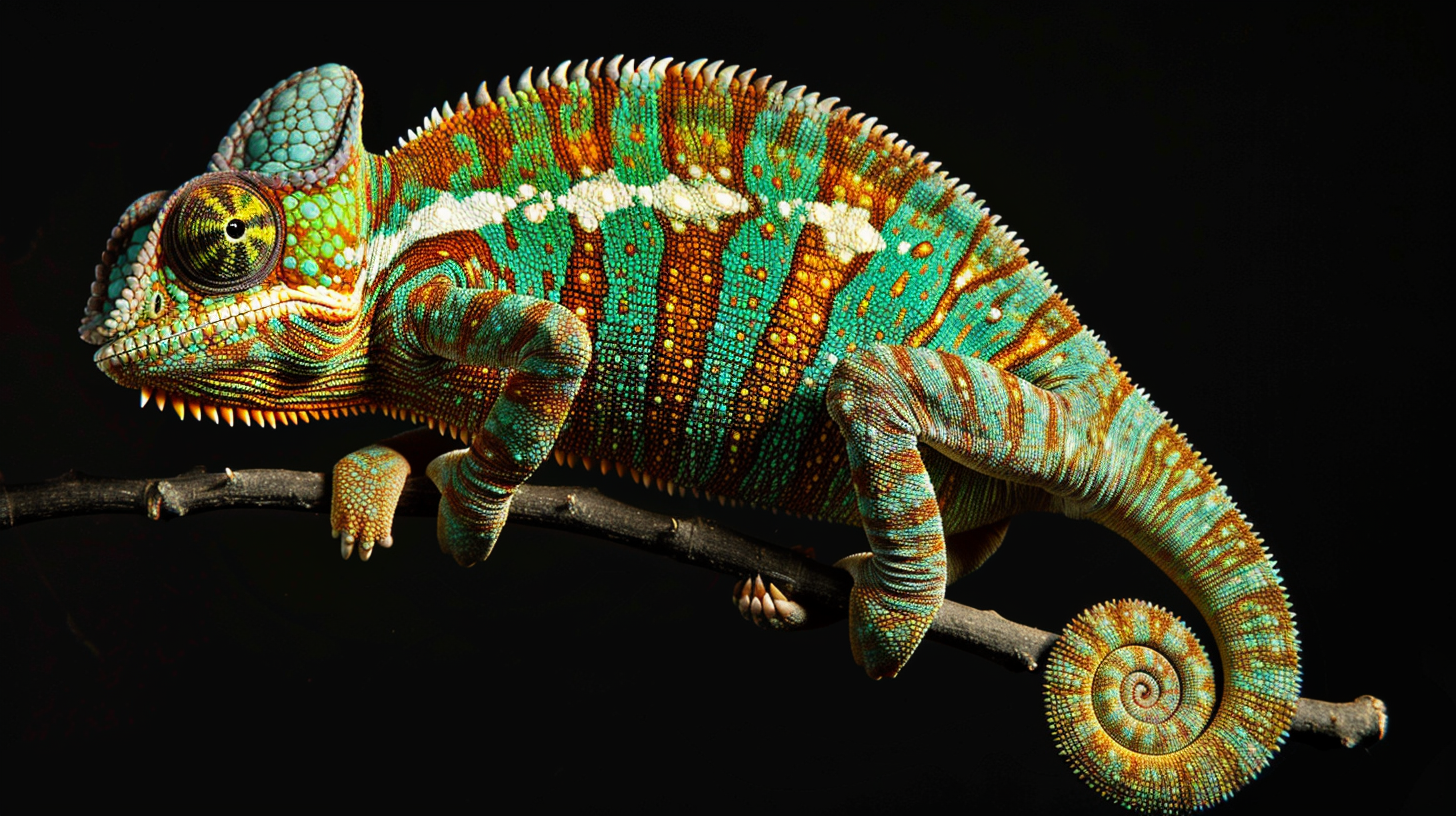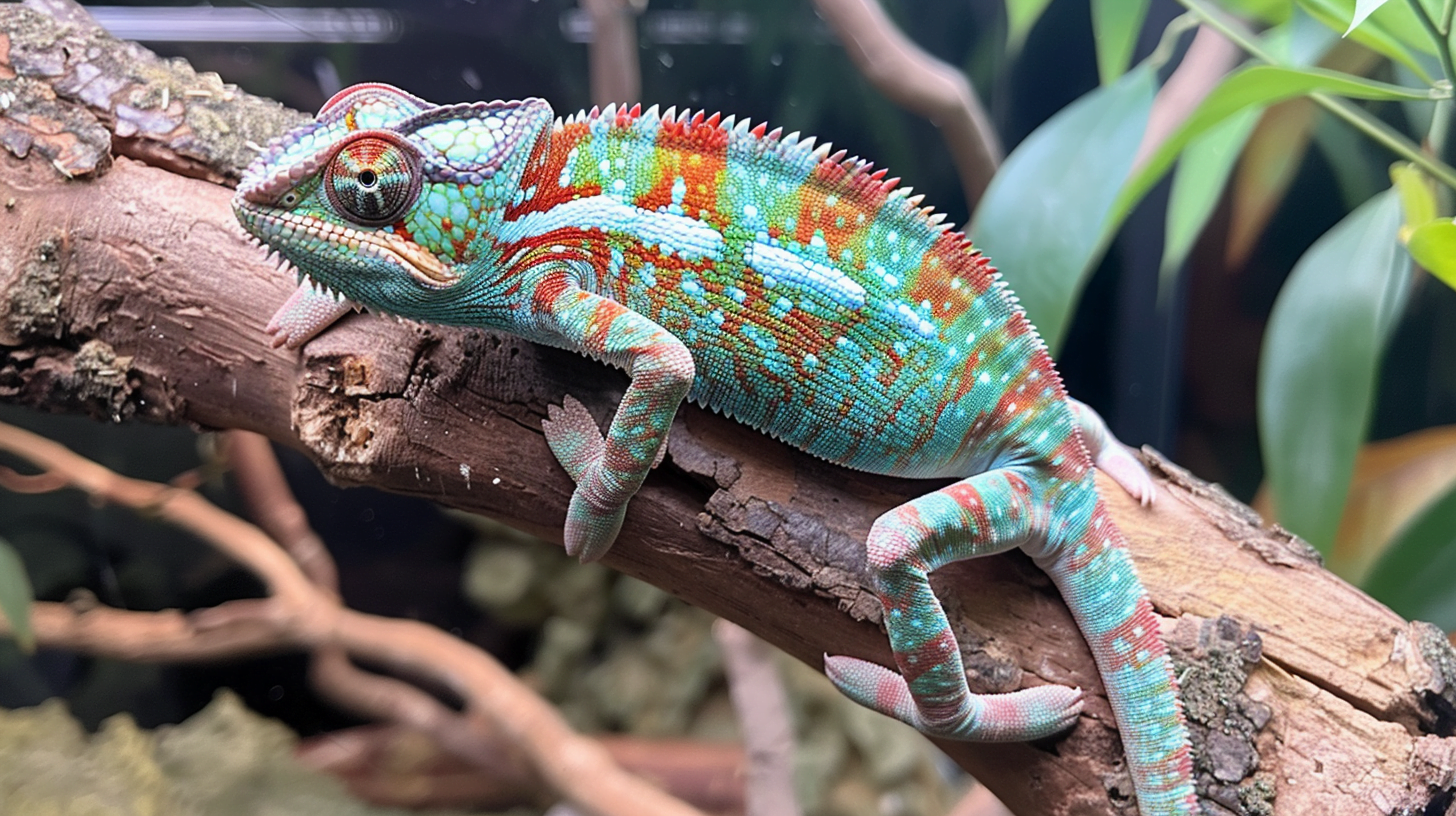Chameleons have long fascinated humans with their unique ability to change color, their independent nature, and their exotic appearance. As a result, many people consider keeping them as pets. However, before bringing a chameleon into your home, it’s essential to understand their specific needs, behavior, and potential health issues. In this article, we’ll delve into the world of chameleons as pets, exploring the pros and cons, care and maintenance, and common health issues to help you decide if a chameleon is the right pet for you.
Understanding Chameleon Behavior and Habitat
Chameleons are native to the tropical and subtropical regions of Africa, Asia, and Europe. They inhabit forests, savannas, and deserts, where they have adapted to their environments in remarkable ways. In the wild, chameleons are primarily insectivores, feeding on a variety of insects, fruits, and leaves. They are solitary animals, only coming together for mating, and are known for their territorial behavior.
Chameleon Species Suitable as Pets
While there are over 200 species of chameleons, only a few are commonly kept as pets. The most popular species for beginners are:
- Veiled Chameleons (Chamaeleo calyptratus): Originating from Yemen and Saudi Arabia, veiled chameleons are one of the most common pet chameleons. They are relatively small, reaching lengths of 18-24 inches, and are known for their calm nature.
- Panther Chameleons (Furcifer pardalis): Native to Madagascar, panther chameleons are larger, reaching lengths of 24-30 inches, and are recognized by their vibrant color patterns. They are more demanding than veiled chameleons and require a more experienced owner.
- Jackson’s Chameleons (Trioceros jacksonii): Hailing from East Africa, Jackson’s chameleons are smaller, reaching lengths of 10-15 inches, and are known for their gentle nature. They are a good choice for those who want a smaller pet chameleon.
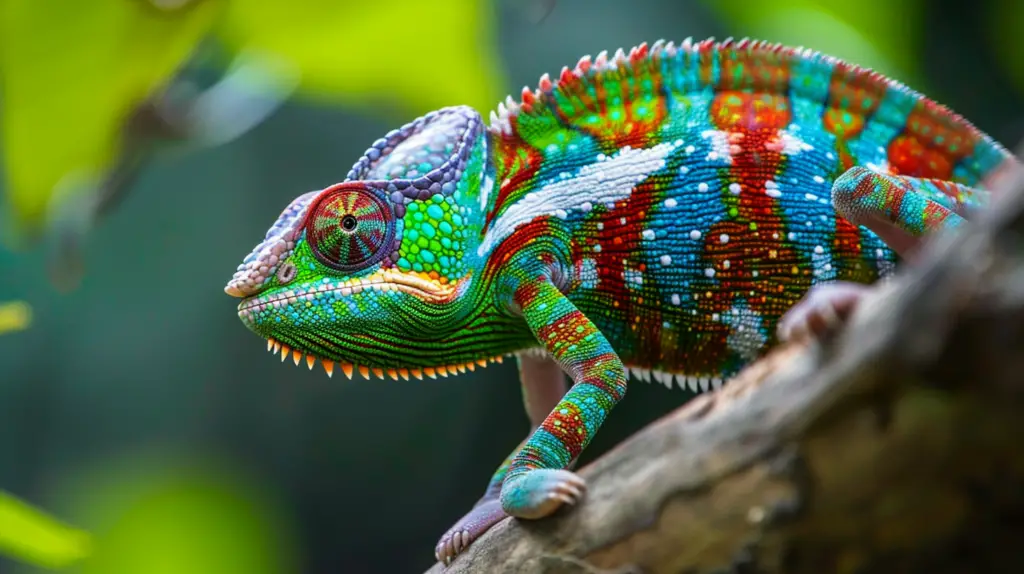
Pros of Keeping Chameleons as Pets
Unique Characteristics and Benefits
Chameleons offer several advantages as pets, including:
- Color-Changing Abilities: Chameleons can change color to communicate, regulate their body temperature, and blend in with their surroundings. This unique ability makes them fascinating to observe.
- Low Space Requirements: Compared to other reptiles, chameleons require relatively small enclosures, making them a great choice for those with limited space.
- Quiet and Calm Nature: Chameleons are generally quiet and calm, making them a good choice for those who live in apartments or have noise restrictions.
Chameleon Care and Handling
Chameleons are relatively low-maintenance pets when it comes to care and handling. They:
- Require Simple Feeding and Hydration: Chameleons eat live insects, which can be easily obtained at pet stores, and need a shallow water dish for hydration.
- Are Gentle and Can Be Handled: Chameleons are not typically aggressive and can be handled gently and carefully. However, it’s essential to wash your hands before and after handling your chameleon to prevent the transfer of bacteria.
Cons of Keeping Chameleons as Pets
Specialized Care and Equipment
While chameleons are relatively low-maintenance, they do require specialized care and equipment, including:
- High Humidity and Temperature Requirements: Chameleons need a warm, humid environment, which can be achieved with heat sources, UVB lighting, and misting systems.
- Large, Well-Ventilated Enclosures: Chameleons need room to climb and bask, requiring a large, well-ventilated enclosure with adequate space for branches and plants.
Health Issues and Veterinary Care
Chameleons are prone to several health issues, including:
- Metabolic Bone Disease (MBD): Caused by a lack of calcium and vitamin D3, MBD can lead to softening of the bones and other skeletal problems.
- Respiratory Infections: Chameleons are susceptible to respiratory infections, which can be caused by poor ventilation, high humidity, and bacterial infections.
- Difficulty Finding Experienced Veterinarians: Chameleons require specialized care, and finding a veterinarian with experience in treating reptiles can be challenging.
Chameleon Care and Maintenance
Creating a Suitable Environment
To create a suitable environment for your chameleon, you’ll need:
- A Large, Well-Ventilated Enclosure: A minimum size of 2x2x4 feet is recommended, with adequate ventilation to prevent the buildup of bacteria and fungi.
- Heating, Lighting, and Humidity Control: A heat source, such as a heat lamp or ceramic heat emitter, is necessary to maintain a temperature range of 75-90°F. UVB lighting is also essential for calcium metabolism and preventing MBD.
- Substrate and Decoration Options: A substrate, such as paper towels or indoor/outdoor carpeting, is necessary to line the enclosure. Decorations, such as branches and plants, provide climbing structures and visual stimulation.
Diet and Nutrition
Chameleons have specific dietary needs, including:
- Live Insect Feeding and Supplementation: Chameleons eat live insects, such as crickets, mealworms, and waxworms, which should be dusted with a calcium and vitamin D3 supplement.
- Fresh Water and Hydration Methods: A shallow water dish should be provided, and misting the enclosure daily can help maintain humidity and encourage drinking.
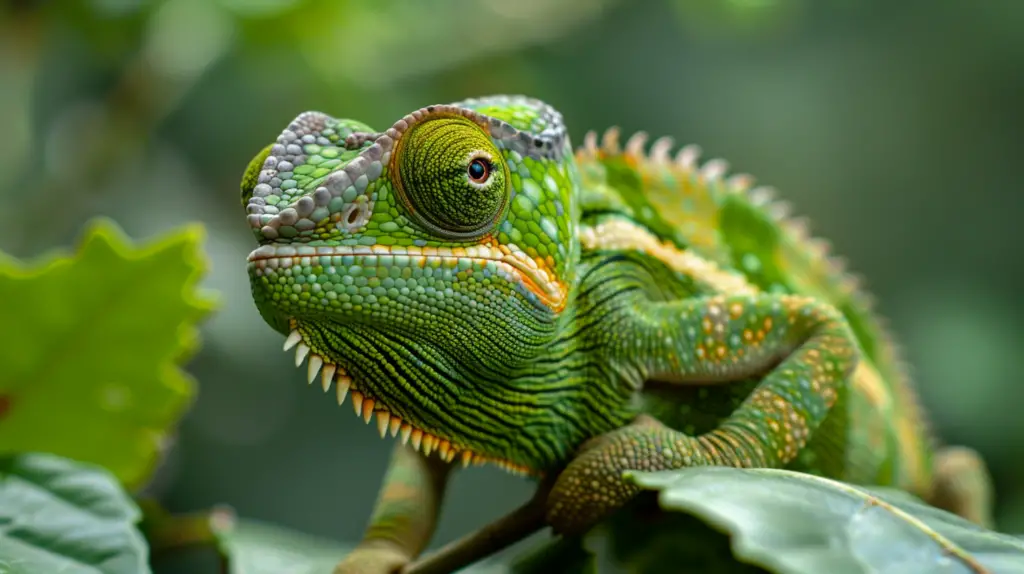
Common Chameleon Health Issues
Identifying and Preventing Health Problems
Chameleons are prone to several health issues, including:
- Signs of Stress and Illness: Changes in appetite, color, or behavior can indicate stress or illness.
- Preventative Measures and Regular Check-Ups: Regular veterinary check-ups and a clean, well-maintained enclosure can help prevent health issues.
- Common Health Issues in Captive Chameleons: MBD, respiratory infections, and dehydration are common health issues in captive chameleons.
Conclusion
Are Chameleons Good Pets for You?
Keeping a chameleon as a pet can be a rewarding experience, but it’s essential to consider the pros and cons carefully. Chameleons require specialized care and equipment, and their health issues can be challenging to address. However, for those willing to invest the time and effort, chameleons can make fascinating and unique pets.
Before bringing a chameleon into your home, ask yourself:
- Do I have the space and equipment to provide a suitable environment?
- Am I prepared to handle the potential health issues that may arise?
- Do I have the time and patience to care for a chameleon?
If you’ve answered “yes” to these questions, a chameleon may be the perfect pet for you. With the right care and attention, a chameleon can thrive and provide years of companionship and fascination.
